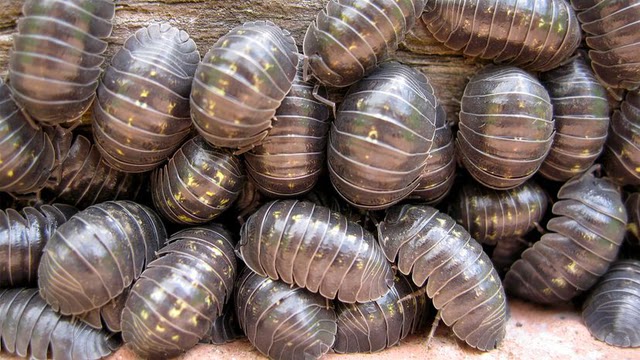Quck answer
Pillbugs, also known as “roly-polies,” are excellent composters for your garden. These small insects feed on decaying organic matter, such as leaves and dead plants, and break it down into nutrient-rich soil. They also help aerate the soil by burrowing through it, allowing water and oxygen to reach plant roots. Pillbugs are harmless to plants and humans, making them a welcome addition to any garden. To attract pillbugs to your garden, provide a moist environment and plenty of organic matter for them to feed on. Avoid using pesticides and other chemicals that can harm these helpful insects.
Wild Animals

Roly-poly bugs are also known as potato bugs, pill bugs, and woodlice, and they are scientifically called Armadillidium vulgare. These tiny gray crustaceans are found in dark and damp places across the world, and they are the only crustaceans that have adapted to live entirely on land. Even though they may seem like a nuisance, they don’t sting, bite, or carry diseases, and they are beneficial for your backyard garden.
The microbes present in the roly-poly’s gut help them break down dead organic matter, and their detritivorous diet positively affects the ecosystem by increasing the mineral content of the soil. They absorb nutrients from decomposing plants, animals, and poop, which increases the speed of decomposition and the bioavailability of nutrients in the soil. This results in the creation of healthy soil that helps plants thrive.
Roly-poly bugs also love heavy metals, and they ingest a lot of heavy metal contamination from the soil. After ingesting these toxins, the heavy metals become crystallized within their guts, which means that they could effectively clean a construction site contaminated with heavy metals.
Since roly-poly bugs are crustaceans, they need moisture to breathe, and they typically get it from the tender sprouts of young fruits and vegetables. However, they rarely cause damage to these plants. So, if you notice a roly-poly party taking place in your backyard, don’t worry as they are doing a lot of the heavy lifting involved in creating the healthy soil that will benefit your garden.
Now That’s Interesting
Similar to their distant cousins, shrimp, and lobster, roly-poly bugs breathe through a pair of gills.
FAQ
What are ‘roly-poly’ bugs?
‘Roly-poly’ bugs, also known as pill bugs or woodlice, are small crustaceans that are commonly found in gardens. They are usually gray or brown in color and have a hard exoskeleton that protects their bodies. These bugs are known for their ability to roll up into a tight ball when they are threatened, which is where they get their name from.
How do ‘roly-poly’ bugs help with composting?
‘Roly-poly’ bugs are great for composting because they eat decaying plant matter. As they consume this material, they break it down into smaller pieces, which makes it easier for other decomposers, like bacteria and fungi, to break it down further. This process helps to speed up the composting process and produces a nutrient-rich soil amendment.
Are ‘roly-poly’ bugs harmful to plants?
No, ‘roly-poly’ bugs are not harmful to plants. In fact, they can be beneficial because they help to break down organic matter in the soil, which can improve soil health and promote plant growth. However, if their population becomes too large, they may start to feed on living plant material. In this case, it may be necessary to control their numbers through physical removal or the use of natural predators.
How can I attract ‘roly-poly’ bugs to my garden?
‘Roly-poly’ bugs are attracted to moist environments with plenty of organic matter to feed on. To attract them to your garden, you can add compost or leaf litter to the soil, and keep the soil moist. Additionally, providing shelter, such as a pile of rocks or a piece of wood, can also encourage ‘roly-poly’ bugs to take up residence in your garden.
Can I use ‘roly-poly’ bugs in vermicomposting?
No, ‘roly-poly’ bugs should not be used in vermicomposting. Vermicomposting relies on the use of worms to break down organic matter, and ‘roly-poly’ bugs are not effective at this task. Additionally, adding ‘roly-poly’ bugs to a vermicomposting system could lead to competition for resources and potentially harm the worms.





Leave a Reply